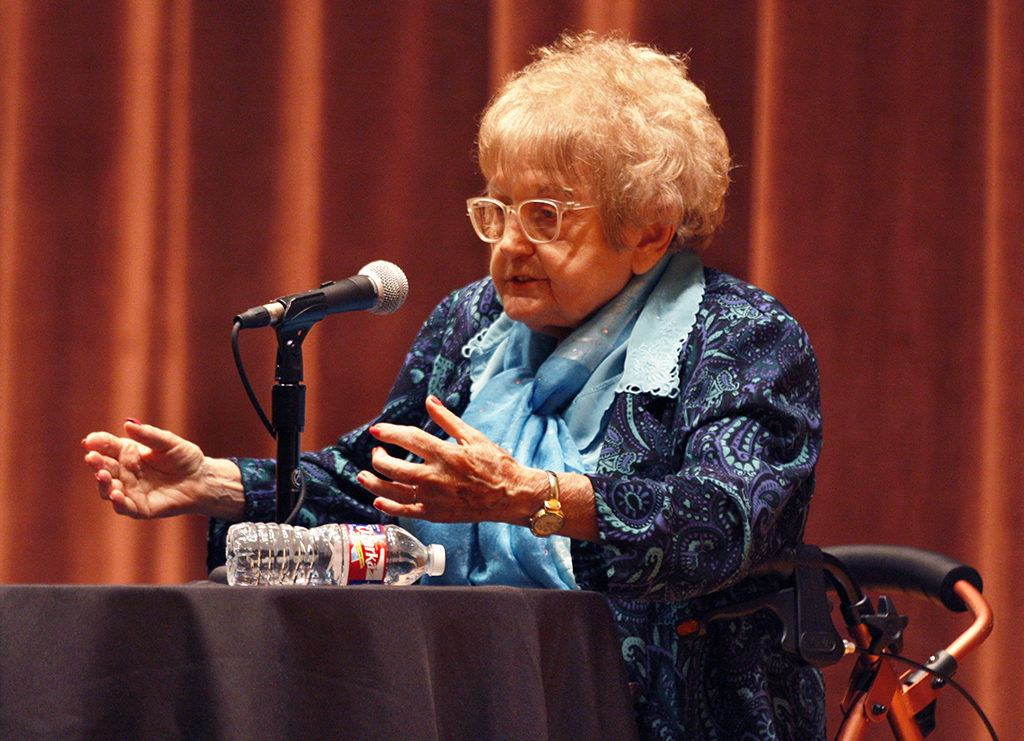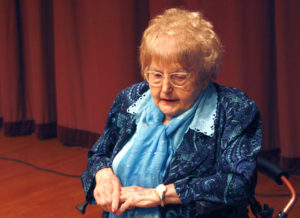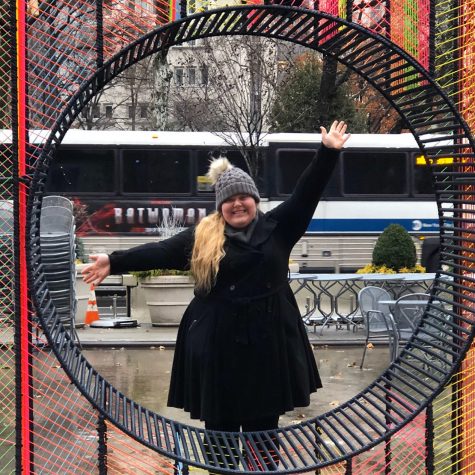Forgiveness trumps hate in eyes of Holocaust survivor
September 22, 2017

She has every right to burn with anger.
At age 10, Nazis stripped her from the only home, the only family she knew. Ripped away from her mother, father and two older sisters, Eva Mozes Kor was left clutching her twin as her mother reached, arms outstretched with desperate despair as they were carted away to be processed in the Dr. Josef Mengele twin experiments, never to see her family again.
Continually injected with unknown substances with gruesome treatment, leaving scars much deeper than physical. Left to the torment from the “Angel of Death.” Watching the death and sorrow suffocate the notorious concentration camp — Auschwitz.
Bur Kor refused to succumb to anger, just as she said she refused to die after months of experimentation and illness plagued her prepubescent body.
Instead, she travels from state to state, country to country, sharing her horrific experiences as a way to take the power back and become a voice of forgiveness in a world that harbors hatred.
Now 73 years later, Kor, Holocaust survivor and forgiveness advocate, urges peace and growth at the premiere of the 53rd Artist-Lecture Series in Akin Auditorium Sept. 21.
“Anybody who is ever a victim always wishes they could change the past, but you cannot change what happened. What happened was history and you cannot forget it, but that means you cannot live,” Kor said. “If you cannot live, then you have to do something with it, and forgiveness is actually a very simple thing. It costs nothing, therefore every person can afford to use it, and it’s really a way to give the power back to the victim.”
Kor has received various awards for her compassion, and although it wasn’t always her immediate reaction, Kor said she found strength and healing through forgiveness because “who on earth benefited from getting angry when you are the one staying hurt?”
“Many people are willing victims, and you have to have the attitude to confront,” she said. “Some people are stuck in a victim mentality, but forgiveness is for you, so you can move on in your life and not hold on to the anger.”
After moving to the United States, Kor pioneered the Children of Auschwitz Nazi Deadly Lab Experiments Survivors Holocaust Museum and Education Center in Terre Haute, Indiana in 1995. An arsonist destroyed the museum in 2003; however, through public support, Kor was able to reopen the museum in 2005.

Opposed to the horrific images displayed at many Holocaust centers, Catie Charlton, CANDLES office manager, said Kor’s museum offers hope and remembrance for visitors.
“Eva focuses largely on making sure guests don’t feel hopeless leaving the museum, but focuses on hope and uplifting people,” Charlton said. “She really wants people to leave with a call to action.”
That call to action is found in layers of understanding, Charlton said. Continual efforts to show empathy, Charlton said, breathes life into the world.
“Make a deliberate effort to be kind,” Charlton said. “It doesn’t take much effort, and it’s free.”
From Holocaust survivors to actors with cerebral palsy, the Artist-Lecture Series delves into a variety of topics that affect the community, and Emily McDonald, sociology senior and Artist-Lecture Series committee member, said this allows students to enrich their college experience.
“The benefit to having the Artist-Lecture Series is honestly exposing our students to different people who are influential,” she said. “Eva is a historical asset to us, and ultimately this is an opportunity for people to hear her story of prejudice, hatred and bigotry and our campus experiences some of that which Eva speaks to. She gives a new voice from an older generation, and I hope people take her forgiveness message and apply that.”
With the voice she has, Kor has accumulated an extensive list of advocacy for her forgiveness campaign. Along with her three books and two documentaries that fuse stories of Holocaust survivors, a third documentary will follow Kor to Israel and Germany and will be released in 2018, Kor continues to urge kindness as a forefront and wished the Wichita community her “deepest condolences” after the tragic death of cornerback Robert Grays.
“We have to treat each other with respect and love,” Kor said. “When you are a victim, you didn’t do anything to deserve it, but there is very little you can do with anger, but with forgiveness, you are taking back the power that was taken from you, and you can do great things with that determination.”
She has every right to burn with anger.
But instead, she chooses forgiveness.






